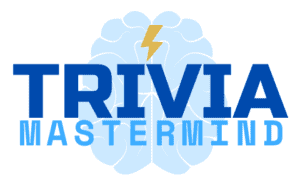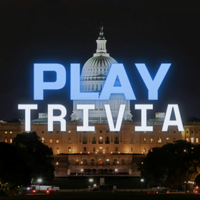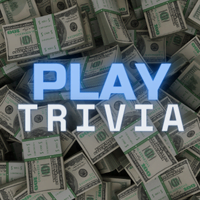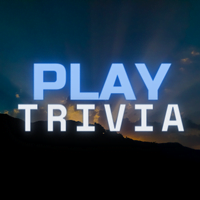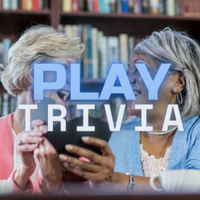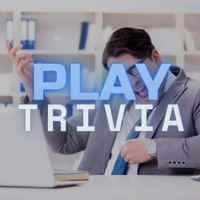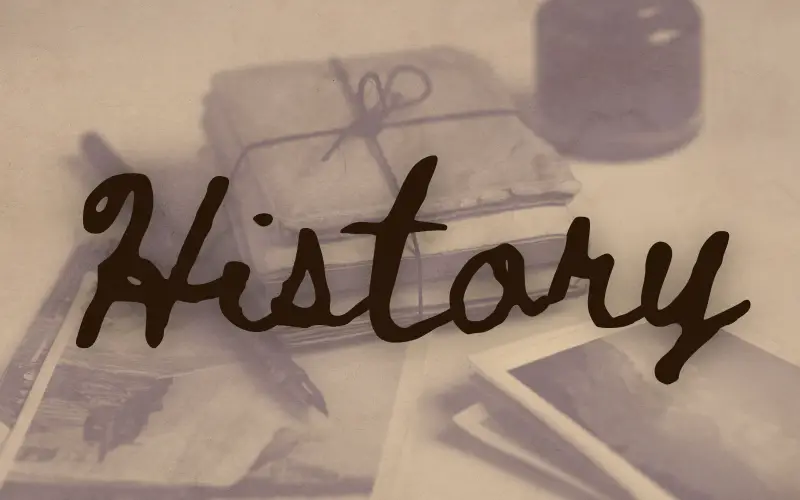
The history of the United States is younger than most nations, yet chock full of interesting facts, which makes the topic excellent for trivia. Below you will find over 202 American history trivia questions and answers. From the discovery of America, all the way to more present current affairs, the United States has a history of adventure, exploration, rebellion, war, and the creation of leading governmental systems, all which are fascinating.
If you are interested in the history of the United States, these 202 American history trivia questions and answers will provide you with hours of entertainment. So whether you are looking to learn new facts about United States history, are in need of trivia questions and answers for a trivia game night, or just want enjoy a night in of stress free learning, you will love these 202 American History Trivia questions. Enjoy!
Contents
| 200+ American History Trivia Questions & Answers 1.1 Play 200+ American History Trivia Questions 1.2 Read 200+ American History Trivia Questions & Answers 200+ American History Trivia Questions & Answers by Category 1.3 The Founding & Establishment of America Trivia 1.4 Laws, Declarations & Significant Events in American History Trivia 1.5 Treaties, Resolutions, Petitions & Coalitions in American History Trivia 1.6 Wars, Battles & Tragedies in American History Trivia Related Content 1.7 Play U.S. Political Trivia 1.8 Play Money Trivia 1.9 Play Bible Trivia 2.0 Play Senior Trivia 2.1 Play Random Trivia |
Play 200+ American History Trivia Questions Quiz

Read 202 American History Trivia Questions & Answers
The following 202 American history trivia questions cover many aspects of American History. The categories include how America was established, significant events, wars, and more. These questions were created for the true American history buff. They are challenging, but also quite interesting. Use them for your next game night, or to challenge yourself in a great topic.
The Founding & Establishment of America Trivia
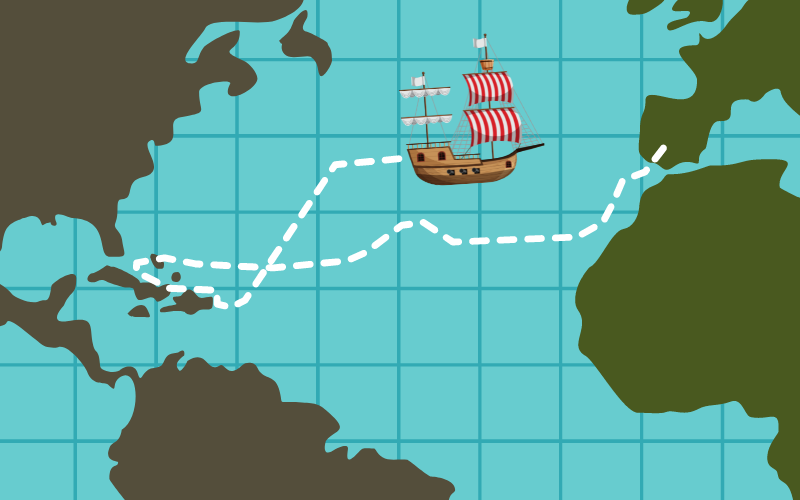
The discovery, founding, and establishment of the United States is petty astounding. When compared to the rest of the world, you will quickly recognize how young of a country the US is, and yet it has managed to ascend so rapidly. If you appreciate the young but mighty past of America, these questions are for you.
Read on for the founding and establishment of America trivia questions and answers.
The Founding & Establishment of America Trivia Questions & Answers
1. Which colony was chartered as a royal colony in 1663?
The Colony of Rhode Island
2. Who was the first ruler of the Kingdom of Hawaii?
Kamehameha I
3. What was the name of the 1803 to 1806 expedition commissioned under Thomas Jefferson, also known as the Corps of Discovery Expedition, and was the United States expedition to cross the newly acquired western portion of the country after the Louisiana Purchase?
The Lewis and Clark Expedition
4. What the first governing document of the Plymouth colony called?
The Mayflower Compact
5. What resource was the London Virginia Company primarily looking for in Jamestown?
Gold
6. In what year did Peter Minuit purchase the Island of Manhattan from the Lenape Indians?
1626
7. What are the English Puritan separatists who came to North America on the Mayflower known as today?
The Pilgrims
8. What was the name of the 1660 state department that helped govern the Thirteen Colonies from London?
The Southern Department
9. Catholic Monarchs from which country sponsored the expeditions of Christopher Columbus?
Spain
10. Which King granted charters to both the Plymouth Company and the London Company for the purpose of establishing permanent settlements in North America?
King James I of England
11. What was the name of the 1754 plan that proposed a unified government of the Thirteen Colonies for coordination of defense and other matters, but was rejected by the leaders of most colonies?
The Albany Plan of Union
12. Who was the prominent American abolitionist, journalist, suffragist, and social reformer, best known for his widely-read anti-slavery newspaper The Liberator?
William Lloyd Garrison
13. What was the first successful permanent settled English colony on the continent of North America?
Jamestown
14. What was the name of the series of legislative bodies which met in the British American colonies and the newly declared United States just before, during, and after the American Revolution?
The Continental Congress
15. Which colony was conquered by the Dutch in 1655?
New Sweden
16. In what year did the American revolution end?
1783
17. Prior to being split into two colonies, what were the combination of the North and South Carolina colony called?
The Province of Carolina
18. What was the name of the series of Christian revivals that swept Britain and its thirteen North American colonies in the 1730s and 1740s, which permanently affected Protestantism, as followers strove to renew individual piety and religious devotion?
The Great Awakening
19. Which sovereign state founded the Thirteen Colonies?
Great Britain
20. What ethnicity was Christopher Columbus?
Italian
21. Which ship did the Puritan separatists sail to America on, in 1620?
The Mayflower
22. What was a 2,170 mile east-west, large-wheeled wagon route and emigrant trail in the United States that connected the Missouri River to valleys in Oregon?
The Oregon Trail
23. Which North American colony was established in 1620?
The Plymouth Colony
24. What was the name of the policy in which the central government of the Thirteen Colonies administered its possessions for the economic benefit of the mother country, Great Britain?
Mercantilism
25. In what year did the Thirteen Colonies proclaim their independence from Britain as the United States of America?
1776
26. Who is considered the Founding Father and the first president of the United States from 1789 to 1797?
George Washington
27. What was the last of the established Thirteen Colonies?
The Province of Georgia
28. What is the current name of the building where both the United States Declaration of Independence and the United States Constitution were debated and adopted?
Independence Hall
29. What form of unfree labor provided a means for many poor Europeans immigrating to America, where a person would sign a contract agreeing to a set term of labor, and in return would receive transport and a piece of land at the end of the term?
Indentured Servitude
30. What was the name of the committee of the Privy Council that helped govern the Thirteen Colonies?
The Board of Trade and Plantations
31. Who was the only President of the Confederate States of America?
Jefferson Davis
32. Who discovered the St. Lawrence River?
Jacques Cartier
33. In what year was the Province of Maryland established as proprietary colony?
1632
34. What was the first political party in the United States?
The Federalist Party
35. Which two colonies were chartered as a royal colonies in 1729?
The Province of North Carolina and the Province of South Carolina
36. What was a widely held cultural belief in the 19th-century United States that American settlers were destined to expand across North America?
Manifest Destiny
37. Which colony was chartered as a royal colony in 1679?
The Province of New Hampshire
38. What cash crop did the London Virginia Company turn to in order to flourish in Jamestown later on?
Tobacco
39. Which colony was chartered as a royal colony in 1662?
The Connecticut Colony
40. What was the first official public office George Washington held?
Surveyor of Culpeper County
41. After Abraham Lincoln won the 1860 election, seven Southern states seceded from the union and set up a new nation; what was the name of this new nation?
The Confederate States of America
42. What was the name of the agreement that served as the first constitution of the 13 original states of the United States of America?
The Articles of Confederation and Perpetual Union
43. Who was the first Treasury Secretary of the United States of America?
Alexander Hamilton
44. What was the first established European settlement, in what would eventually become the United States?
St. Augustine
45. Who was the American writer, political activist and the 1934 Democratic Party nominee for Governor of California, as-well-as the author of the novel The Jungle, which exposed labor and sanitary conditions in the U.S. meat packing industry?
Upton Beall Sinclair Jr.
46. When was the Province of Pennsylvania established as proprietary colony?
1681
47. Who was the founder of the proprietary colony of Quaker, Pennsylvania, in 1681?
William Penn
48. Which colony was chartered as a royal colony in 1702?
New Jersey
49. Who wrote the lyrics to “The Star Spangled Banner”?
Francis Scott Key
50. Who was a Puritan minister, theologian, and author who founded Providence Plantations in 1636?
Roger Williams
51. Which colony did not send delegates to the First Continental Congress?
Georgia
52. Which colony was chartered as a royal colony in 1752?
The Province of Georgia
53. Who was the leader of the newly formed Plymouth Colony?
William Bradford
54. In 1925, who did President Calvin Coolidge declare was the first European to discover America?
Leif Erikson
55. What group of Native Americans taught the Pilgrims of Plymouth how to farm maize?
The Wampanoag
56. Who was elected as the First President of the Continental Congress?
Peyton Randolph
57. What proposal was presented by William Paterson in response to the Virginia Plan?
The New Jersey Plan
58. In 1638, what colony did Sweden establish in the Delaware Valley?
New Sweden
59. Which United States President did not renew the charter of the Second Bank of the United States of America and implemented state banks instead?
Andrew Jackson
60. Who is attributed to having created the Join, or Die political cartoon published by the Pennsylvania Gazette on May 9, 1754?
Benjamin Franklin
61. Seeking to protect their interests in the fur trade, which colony did the Dutch West India Company establish on the Hudson River?
New Netherland
62. Who attempted to establish the first British colony in North America, at Roanoke in 1585, but failed?
Sir Walter Raleigh
63. What was the meeting of 12 delegates from the 13 British colonies, from September 5th to October 26th, 1774 called?
The First Continental Congress
64. What Act was passed by the British government in 1765, which required colonists to provide food and lodging to British troops?
The Quartering Act
65. Who was the first European to sail into New York Harbor and Narragansett Bay?
Giovanni da Verrazzano
66. Who establish Georgia in 1732 as a border to Spanish Florida and a reform colony for former prisoners and the poor?
James Edward Oglethorpe
67. What is the name of the meeting hall where the First Continental Congress met in 1774 to discuss how the colonies could collectively respond to the British government’s coercive actions?
Carpenters’ Hall
181 U.S. Political Trivia Questions & Answers
Learn various U.S. political facts from every branch of government. Click the play now button to begin.
Laws, Declarations, & Significant Events in American History Trivia
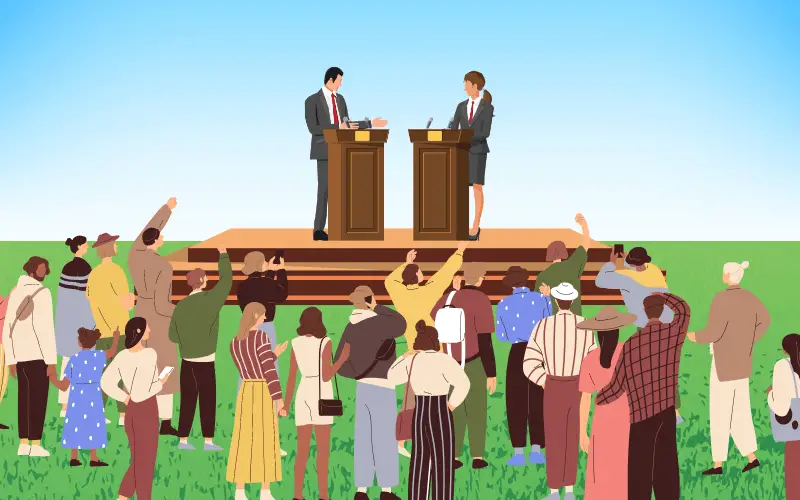
There were many revolutionary ideas that created significant change in American society. Many of these moments were lead by great people, or larger world events. These moments would help the US establish laws and new ways of operating which would push society towards a greater overall good.
If you appreciate the revolutionary moments of American history, continue reading for laws, declarations, & significant events in American history trivia questions and answers.
Laws, Declarations & Significant Events in American History Trivia Questions & Answers
68. What is the name of the 1920s decade that refers to the period of economic prosperity in the United States and Western Europe?
The Roaring Twenties
69. Who was the first woman to hold federal office in the United States, as an elected member of U.S. House of Representatives?
Jeannette Rankin
70. What is the name of the central banking system of the United States of America, created in 1913, after a series of financial panics that led to the desire for central control of the monetary system in order to alleviate financial crises?
The Federal Reserve System
71. What year did Prohibition end in the United States of America?
1933
72. Who was the American labor leader, community organizer, businessman, and Latino American civil rights activist, who along with Dolores Huerta, co-founded the National Farm Workers Association, which eventually became the United Farm Workers labor union?
César Chávez
73. Which 1852 novel had a profound effect on attitudes towards slavery in the U.S. and is said to have laid the groundwork for the Civil War?
Uncle Tom’s Cabin
74. What is the colloquial or more common name for 2009 Car Allowance Rebate System, which was a $3 billion U.S. federal program intended to provide economic incentives to U.S. residents to purchase a new, more fuel-efficient vehicle when trading in a less fuel-efficient vehicle?
“Cash for Clunkers“
75. What was the name of the first artificial Earth satellite that the Soviet Union launched into a low elliptical Earth orbit in 1957, which was an unexpected leapfrogging of American technology by the Soviet Union?
Sputnik I
76. Which 1920 United States Constitutional Amendment established the prohibition of alcohol in the United States?
The 18th Amendment
77. Who was the oldest President to ever take office in the United States of America?
Joe Biden
78. In what year did Martin Luther King Jr. win the Nobel Peace Prize for his efforts to achieve equality of the races?
1964
79. Who was the important leader in social work and women’s suffrage, and became the first American woman to be awarded the Nobel Peace Prize?
Jane Addams
80. What was the name of the American New Deal agency, established in 1935 by presidential order, as part of the Second New Deal that employed millions of mostly unskilled job-seekers to carry out public works projects, such as the construction of public buildings and roads?
The Works Progress Administration
81. What was the name of the 2008 federal government program that lent $245 billion to financial institutions during the “Great Recession”, where multiple overlapping financially related crises were involved?
The Troubled Asset Relief Program
82. What is the Civil Rights Act of 1968 currently and more commonly known as now?
The Fair Housing Act of 1968
83. Which document was written by the First Continental Congress in 1765, in response to the Stamp and Tea Acts, because American colonists were in opposition to the acts of the British government, since they were passed without the consideration of the colonists’ opinions?
The Declaration of Rights and Grievances
84. What was the name of the informal 20th-century competition between the Soviet Union and the United States, to achieve firsts in spaceflight capability?
The Space Race
85. Who was the author of the novel, The Feminine Mystique, and also helped establish the National Organization for Women (NOW)?
Betty Friedan
86. Which King issued The Royal Proclamation of 1763, which forbade all settlements west of a line drawn along the Appalachian Mountains, and was delineated as an Indian Reserve?
King George III
87. What was the Declaration of Independence formally known as?
The Unanimous Declaration of the Thirteen United States of America
88. What year did prohibition begin in the United States of America?
1920
89. What is the name of the 1932 Franklin D. Roosevelt promised domestic policies that resulted in a series of permanent reform programs such as relief for the unemployed, social security, unemployment insurance, public housing, and so on?
The New Deal
90. What was the name of the U.S. spaceflight, which was the first spaceflight that landed humans on the Moon in 1969?
Apollo 11
91. What was the original title of the Mayflower Compact called?
Agreement Between the Settlers of New Plymouth
92. What was the name of the King George III proclamation, which was the response to the news of the Battle of Bunker Hill and declared elements of the American colonies in a state of “open and avowed rebellion”?
The Proclamation of Rebellion
93. What is the 1787 Randolph Plan also known as?
The Virginia Plan
94. Who was the the Chief Justice from 1801–1835, that was responsible for defining the functions of the Supreme Court, especially the power to overturn acts of Congress or states that violated the Constitution?
John Marshall
95. What is the name of the civil, social, political, and religious rights document, signed in 1848 by 68 female and 32 male attendees at the Seneca Falls Convention?
The Declaration of Rights and Sentiments
96. What was the name of the system created by the First Continental Congress in 1774, which implemented a successful trade boycott with Great Britain?
The Continental Association
97. Which 1863 executive order issued by President Abraham Lincoln changed the legal status, as recognized by the U.S. government, of 3 million slaves in designated areas of the Confederacy from “slave”, to “free”?
The Emancipation Proclamation
98. What are the first ten amendments to the Constitution called?
The Bill of Rights
99. What social movement occurred during the Second Great Awakening, which sought to end slavery in the United States?
Abolitionism
100. What was the first women’s rights convention in 1848 called?
The Seneca Falls Convention
101. In what year was the Social Security Act signed by Franklin D. Roosevelt?
1935
102. Who revised Thomas Jefferson’s final draft of the Declaration of the Causes and Necessity of Taking Up Arms?
John Dickinson
103. What was the name of the political and a social protest campaign against the policy of racial segregation on the public transit system in Alabama, which occurred as a result of the arrest of Rosa Parks for her refusal to surrender her seat to a white person in 1956?
The Montgomery Bus Boycott
104. What is the name of the American political and mercantile protest carried out by the Sons of Liberty, where on December 16, 1773, demonstrators destroyed an entire shipment of tea sent by the East India Company to Boston, Massachusetts?
The Boston Tea Party
105. What are the Thirteenth, Fourteenth, and Fifteenth amendments to the United States Constitution called?
The Reconstruction Amendments
106. What canal was opened by the United States in 1904 and created a shortcut which greatly reduced the time for ships to travel between the Atlantic and Pacific oceans?
The Panama Canal
107. Who originated the political slogan “No taxation without representation!”
James Otis
108. What was the name of the tax protest in the United States that began in 1791 and ended in 1794, which occurred in response to the first imposed tax by the newly formed federal government?
The Whiskey Rebellion or the Whiskey Insurrection
109. What was the name of the set of United States domestic programs launched by President Lyndon B. Johnson in from 1964 to 1965, where the mains goal were the total elimination of poverty and racial injustice?
The Great Society
110. What is the name of the 1917 United States federal law that intended to prohibit interference with military operations or recruitment, prevent insubordination in the military, and prevent the support of United States enemies during wartime?
The Espionage Act of 1917
111. What was the name of the 1935 foundational statute of United States labor law that guarantees the right of private sector employees to organize into trade unions, engage in collective bargaining, and take collective action such as strikes?
National Labor Relations Act of 1935
112. What is the name of the 1963 organized movement led by Martin Luther King Jr. with the Southern Christian Leadership Conference, to bring attention to the integration efforts of African Americans in Birmingham, Alabama, and eventually led to municipal government changes in the city’s discrimination laws?
The Birmingham Campaign
113. What 2001 Act of the United States Congress was signed into law by U.S. President George W. Bush expand abilities of law enforcement to surveil, ease interagency communication so federal agencies could more effectively collaborate on counterterrorism efforts, and increase penalties for terrorism?
The USA PATRIOT Act
114. What was the 18th century British Crown unofficial policy of avoiding strict enforcement of parliamentary laws, as long as British colonies remained loyal to their government, and contributed to the economic growth of their parent country?
Salutary Neglect
115. Which 1954 court case marked a landmark decision of the U.S. Supreme Court in which the Court ruled that U.S. state laws establishing racial segregation in public schools were unconstitutional?
Brown v. Board of Education
116. What is the current name of the 2010 United States federal statute, enacted by the 111th United States Congress and signed into law by President Barack Obama, which represents one of the most significant regulatory overhauls of the U.S. healthcare system?
The Affordable Care Act or ACA
117. Who proposed the Albany Plan in 1754, at the Albany congress?
Benjamin Franklin
118. Which Act introduced a major tax cut, that was designed to encourage economic growth, enacted by the 97th US Congress and signed into law by US President Ronald Reagan?
The Economic Recovery Tax Act of 1981 or the ERTA
119. What is the name of the 1894 nationwide railroad strike in the United States, which was a major turning point for US labor law?
The Pullman Strike
120. Which punitive laws were passed by the British Parliament in 1774, meant to punish the Massachusetts colonists for their defiance in the Tea Party protest?
The Intolerable Acts
121. Which landmark legislative achievement of the United States, outlaws discrimination based on race, color, religion, sex, national origin, and later, sexual orientation and gender identity?
The Civil Rights Act of 1964
122. Which 19th century legislation outlawed monopolies in business?
The Sherman Anti-trust Act
123. What act passed the 1856 United States federal law that enabled U.S. citizens to take possession, in the name of the United States, unclaimed islands containing the accumulated excrement of seabirds and bats?
The Guano Islands Act
124. What were the name of the 19th and 20th century enacted state and local laws that enforced racial segregation in the Southern United States?
Jim Crow Laws
125. What was the social movement that occurred during the Second Great Awakening, which was against the consumption of alcohol?
The Temperance Movement
126. Which United States federal legislation signed by President Lyndon B. Johnson prohibits racial discrimination in voting?
The Voting Rights Act of 1965
111 Money Trivia Questions & Answers
Learn fascinating money facts in all aspect of finance. Click the play now button to begin.
Treaties, Resolutions, Petitions & Coalitions in American History Trivia
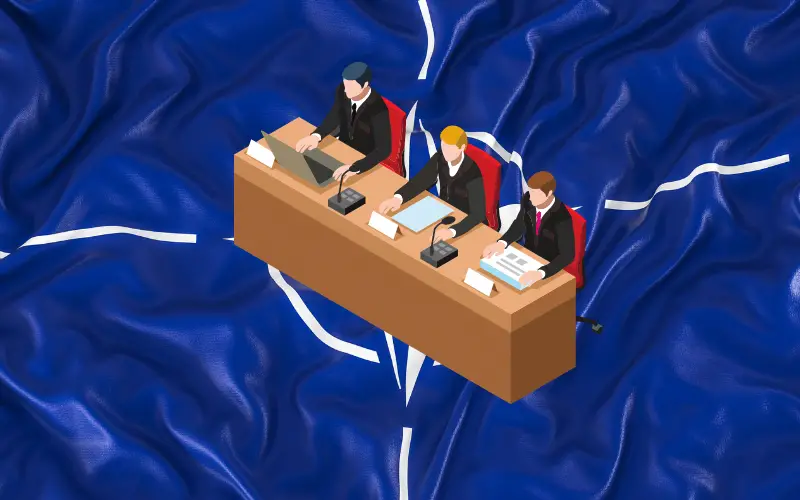
There were many doctrines, groups, treaties and other types of organized collaborations that lead America towards great improvements and prosperity. It was through great minds, and many times, great need, that these doctrines would manifest themselves into necessary realities.
To learn more, read on for treaties, resolutions, petitions & coalitions in American history trivia questions and answers.
Treaties, Resolutions, Petitions & Coalitions in American History Trivia Questions & Answers
127. What U.S. government agency operated from 1865 to 1872 to provide food, clothing, medical care, and temporary shelter, to destitute and suffering refugees and freedmen, as-well- as their wives and children?
The Freedmen’s Bureau
128. What was the United States policy that opposed European colonialism in the Americas and argued that any intervention in the politics of the Americas by foreign powers was a potentially hostile act against the United States?
The Monroe Doctrine
129. Which term of foreign affairs was initially used to refer to the policy established in the late 19th century and the early 20th century that would allow for a system of trade in China open to all countries equally?
The Open Door Policy
130. What was the name of the first worldwide intergovernmental organization whose principal mission was to maintain world peace, founded in 1920?
The League of Nations
131. What was the name of the unofficial Congressional coalition founded in 1937, which brought together the conservative wing of the Republican Party and the conservative wing of the Democratic Party?
The Conservative Coalition
132. What was the name of the agency of the United States government, established by President Franklin D. Roosevelt, that supervised war production during World War II?
The War Production Board or WPB
133. What was the 1948 American initiative passed to provide $12 billion in foreign aid to Western Europe to rebuild war-torn regions, remove trade barriers, modernize industry, improve European prosperity, and prevent the spread of communism?
The Marshall Plan
134. What was the name of the 1947 American foreign policy, created with the primary goal of containing Soviet geopolitical expansion during the Cold War?
The Truman Doctrine
135. What was the name of the Resolution adopted by the Second Continental Congress in 1775, which explained why the Thirteen Colonies had taken up arms in what had become the American Revolutionary War?
Declaration of the Causes and Necessity of Taking Up Arms
136. What was the name of the series of acts passed by the US Congress in the 1930s, in response to the growing threats and wars that would lead to World War II?
The Neutrality Acts
137. What is the name of the outlined principles for peace that was to be used for peace negotiations in order to end World War I, in a speech given by Woodrow Wilson to the United States Congress?
The Fourteen Points
138. What petition was adopted by the Second Continental Congress in 1775, as a final attempt to avoid war between Great Britain and the Thirteen Colonies in America?
The Olive Branch Petition
139. What is the name of the 1917 secret diplomatic communication issued from the German Foreign Office, that proposed a military alliance between Germany and Mexico, if the United States entered World War I against Germany?
The Zimmermann Telegram
140. What is the name of the most important 1919 peace treaty that brought World War I to an end, and ended the state of war between Germany and the Allied Powers?
The Treaty of Versailles
141. Which 1674 treaty ended the Third Anglo-Dutch War?
The Treaty of Westminster
142. What was the name of the 1794 treaty between the United States and Great Britain that averted war, resolved issues remaining since the Treaty of Paris of 1783, and facilitated ten years of peaceful trade between the United States and Britain?
The Jay Treaty
143. What treaty ended the 1846 to 1848 Mexican-American War?
Treaty of Guadalupe Hidalgo
144. What was the name of the 1819 treaty that ceded Florida to U.S.?
Adams–Onís Treaty
145. Which 1667 treaty ended the Second Anglo-Dutch War?
The Treaty of Breda
146. Which peace treaty marked the end of the War of 1812?
The Treaty of Ghent
147. Which treaty formally ended the Seven Years’ War?
The Treaty of Paris
148. What is the name of the 1949 intergovernmental military alliance between 30 European and North American countries, where members mutually agree to defend one another in response to an attack by any external party?
North Atlantic Treaty Organization or NATO
149. What was the name of the collective defense treaty signed in Poland between the Soviet Union and seven other Eastern Bloc socialist republics of Central and Eastern Europe in May 1955, during the Cold War?
The Warsaw Pact or the Warsaw Treaty Organization
150. Which treaty was the official recognition by Britain, of the independence of the United States of America?
The Treaty of Paris
151. What was the name of the 150 academic member study group, established in 1917 by Woodrow Wilson, to prepare materials for the peace negotiations following World War I?
The Inquiry
152. What is the name of the formal 1919 and 1920 meeting of the victorious Allies, after the end of World War I, which set the peace terms for the defeated Central Powers?
The Paris Peace Conference
678 Bible Trivia Questions & Answers
Learn Bible facts from every book of the Bible. Click the play now button to begin.
Wars, Battles & Tragedies in American History Trivia
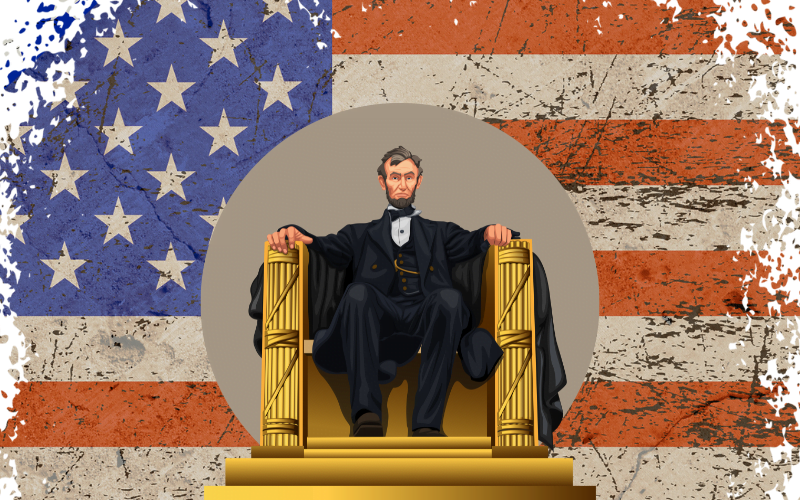
An unfortunate reality in establishing new countries is the ensuing wars that usually occur. For all of our great moments, America has had its share of battles, wars, and many types of other geopolitical tragedies. There were many tough moments in American history, but luckily, this offers the people great opportunity to learn and change.
If you are interesting in learning more, please read on for wars, battles & tragedies in American History trivia questions and answers.
Wars, Battles & Tragedies in American History Trivia Questions & Answers
153. Who long did the 1979 Iran Hostage Crisis go on for?
444 Days
154. Which 1918 Pandemic was responsible for the death of 675,000 lives in the United States of America?
The H1N1 Pandemic
155. Who was appointed as the military governor of the Province of Massachusetts Bay in 1774, in order to implement the Intolerable Acts?
General Thomas Gage
156. Where was Osama Bin Laden killed in 2011?
Abbottabad, Pakistan
157. Who took office up the office of United States President after Richard Nixon resigned in 1974?
Gerald Ford
158. What is the name of the period during the early 20th-century history of the United States, which was marked by a widespread fear of far-left extremism, due to real events of the Russian 1917 October Revolution, anarchist bombings, and some imagined events?
The First Red Scare
159. What is the name of the 1787 armed uprising in Western Massachusetts and Worcester, in response to a debt crisis among the citizenry and in opposition to the state government’s increased efforts to collect taxes both on individuals and their trades?
Shays’ Rebellion
160. What was the name of the Bolshevik Party revolution in Russia, led by Vladimir Lenin, that was instrumental in the larger Russian Revolution of 1917 to 1923, and sparked real fears of Communism in the United States?
The October Revolution or the Great October Socialist Revolution
161. In what year was United States President John F. Kennedy assassinated?
1963
162. What was the United States political scandal involving U.S. President Richard Nixon’s administration, which continuously attempted to cover up its involvement in the June 17, 1972 break-in of the Democratic National Committee headquarter?
The Watergate Scandal
163. In what year did the the Attack on Pearl Harbor occur?
1941
164. What is the name of the U.S. federal executive department created in 2003, that is responsible for public security, anti-terrorism, border security, immigration and customs, cyber security, disaster prevention and management?
The United States Department of Homeland Security or the DHS
165. What is the name of the economic depression in the United States that began in 1893 and ended in 1897, which deeply affected every sector of the economy, and produced political upheaval?
The Panic of 1893
166. What is the name of the 1961 failed landing operation on the southwestern coast of Cuba by Cuban exiles, covertly financed and directed by the U.S. government, and carried out by those who opposed Fidel Castro’s Cuban Revolution?
The Bay of Pigs Invasion
167. Which Kingdom mainly helped the thirteen colonies fight in the American Revolution?
The Kingdom of France
168. What was the proposed missile defense system intended to protect the United States from attack by ballistic strategic nuclear weapons, announced in 1983 by President Ronald Reagan?
The Strategic Defense Initiative or SDI
169. What other building was attacked, along with the World Trade Center on September 11th 2001?
The Pentagon
170. What is the name of the 1962, 1 month and 4 day confrontation between the United States and the Soviet Union which escalated into an international crisis when American deployments of missiles in Italy and Turkey were matched by Soviet deployments of ballistic missiles in Cuba?
Cuban Missile Crisis
171. In what year did the American revolution begin?
1775
172. Which Native American tribe lead the Jamestown massacre?
The Powhatan
173. Which revolution deposed King James II?
The Glorious Revolution or The Revolution of 1688
174. Which 1815 battle was the decisive defeat of a major British invasion, lead by Andrew Jackson, and marked the end of the War of 1812?
The Battle of New Orleans
175. What is the name of the major naval battle in the Pacific Theater of World War II that took place in 1942, six months after Japan’s attack on Pearl Harbor and one month after the Battle of the Coral Sea?
The Battle of Midway
176. What is the name of the association between Great Britain, France, and Russia, that the United States of America joined during World War I?
The Triple Entente
177. What remains to be the deadliest war in American History, resulting in the death of about 750,000 soldiers?
The American Civil War
178. Which war began in 1898, when Spain refused American demands to reform its oppressive policies in Cuba?
The Spanish–American War
179. What was the name of the Army that was formed by the United States, after the outbreak of the American Revolutionary War?
The Continental Army
180. What was the name of the coalition that fought World War I, which consisted of Germany, Austria-Hungary, the Ottoman Empire and Bulgaria?
The Central Powers or the Quadruple Alliance
181. What was the name of the military coalition that fought in World War II against the Allies?
The Axis Powers
182. What was the 1975 capturing of Saigon by the People’s Army of Vietnam and the Viet Cong, marking the end of the Vietnam War called?
The Fall of Saigon or the Liberation of Saigon
183. Who was the American military officer that served during the Revolutionary War, that first fought for the American Continental Army, rising to the rank of major general, and then defected to the British side of the conflict in 1780?
Benedict Arnold
184. In what year did the French and Indian War begin?
1754
185. Which 1863 battle, involved the largest number of casualties of the entire American Civil War and is often described as the war’s turning point due to the Union’s decisive victory?
The Battle of Gettysburg
186. In what year did the Soviet Union collapse, ending the Cold War with the United States?
1991
187. What event created the conflict which lead to the Mexican-American War from 1846 to 1848?
The Annexation of the Republic Texas
188. Which battles marked a decisive victory of the United States over the British, who were attempting to gain control of the Hudson River valley during the American Revolutionary War?
The Battles of Saratoga
189. Which two countries helped the Thirteen Colonies defeat the British in the American Revolutionary War?
France and Spain
190. What is the French and Indian War also known as?
The Seven Years’ War
191. What event is generally agreed upon as the beginning of the American Civil War?
The Attack on Fort Sumter
192. What was the name of the first military engagements of the American Revolutionary War?
Battles of Lexington and Concord
193. What year did the Vietnam War begin?
1955
194. What is the name of the period of geopolitical tension between the Soviet Union and the United States, spanning from 1947 to 1991?
The Cold War
195. Who was the American Confederate best known as the General in Chief of the Confederate States Army during the American Civil War?
Robert Edward Lee
196. What was the 1835 to 1836 armed resistance rebellion of colonists from the United States and Tejanos against the centralist government of Mexico called?
The Texas Revolution or the War of Texas Independence
197. What was the final battle of the American Revolutionary War?
The Siege of Yorktown
198. What is the name of the United States military prison located in Cuba, which has been operating since 2002, during the War on Terror?
The Guantanamo Bay Detention Camp
199. Who served as the commanding general of the Union army during the American Civil War and was later elected as the 18th President of the United States?
Ulysses S. Grant
200. What is considered to have been the largest naval battle of World War II and possibly, the largest naval battle in history?
The Battle of Leyte Gulf
201. What was the first major battle between the United States of America and the Confederate states of America in the American Civil War?
First Battle of Bull Run
202. What was the name of the United States World War II research and development program that produced the first nuclear weapons?
The Manhattan Project
175 Senior Trivia Questions & Answers
Check out senior trivia from the last 100 years. Click the play now button to begin.
Play Random Trivia Now!
Play random trivia questions from any of our many trivia categories. Click the play now button to begin.
Recent Posts
Science Trivia - Astronomy ...
Step into a realm of nostalgia as we embark on a journey through the annals of pop culture and bid farewell to 35 recently obsolete technologies. In the ever-evolving landscape of innovation, certain...
